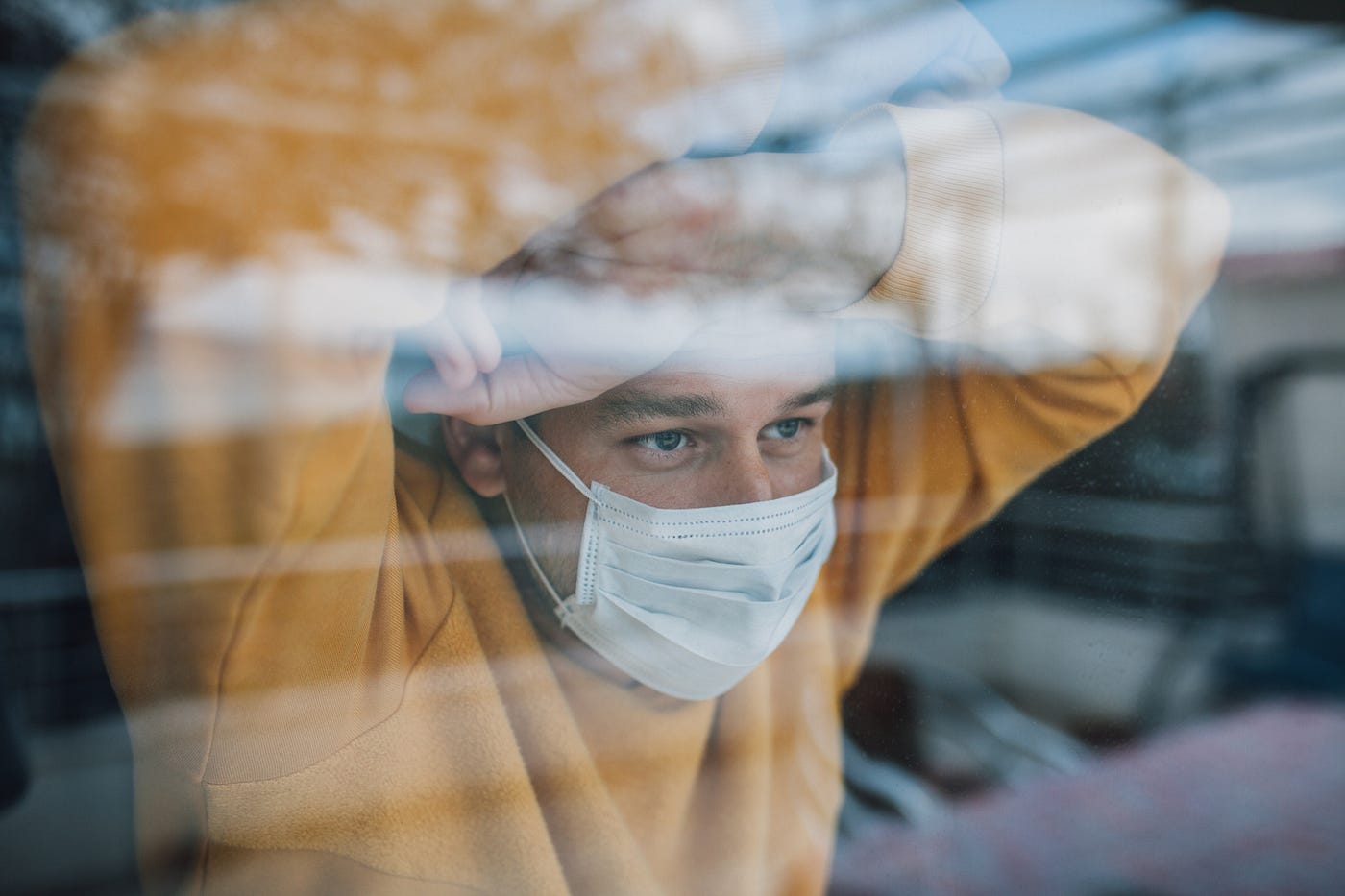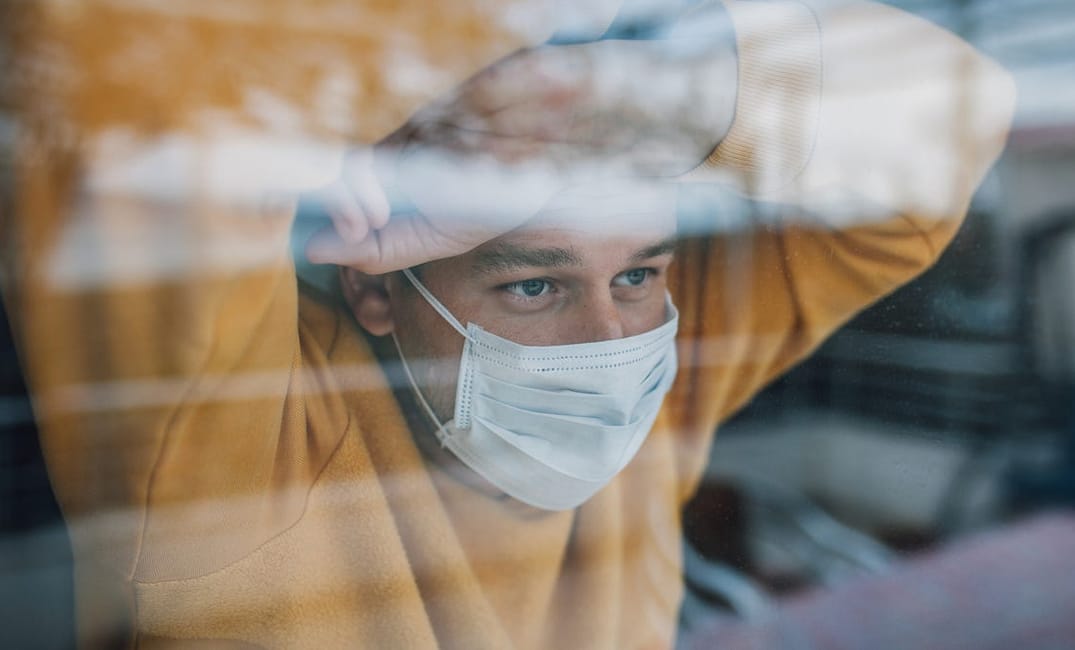
“A month of Sundays.” It’s an odd and ambiguous phrase that I’ve long wondered about. Does it mean a month of liberation from work or simply a long time? Now, I think I know — at least what it means to me. It’s what some of us have experienced since mid-March: a seemingly endless period of time that allows you to slow down.
I never imagined our fast-paced society would experience a month of Sundays, but in a sense, this is what’s happened. The world has been put on hold; we’ve been given a break. Well, some of us have. I realize that for many, this time has meant more work — our medical professionals and essential workers have received no such break.
But for those of us who have the privilege of not needing to go out to work, as poet David Whyte said in April, it’s like “we’ve all been sent to our rooms.”
Sign-up for The Bold Italic newsletter to get the best content about life in the Bay Area in your inbox every week.
I became sick on March 10. I’m still not absolutely certain I had Covid-19. (I was unable to get tested in March, and I’m still waiting for Kaiser to offer an antibody test.) Here’s what I do know: It was an illness that felt unlike any other. The virus ravaging my body seemed to have a life force that grew stronger as it consumed my energy.
When I got fluid in my lungs, I became concerned. In a phone consultation, my doctor diagnosed me as “presumed Covid-19 positive.” The doctor told me to isolate at home for at least 14 days and to come to the emergency room or call 911 if I had serious difficulty breathing. I slept in our guest room, wheezing for three nights, asthma inhaler by my side, hoping I wouldn’t have to go to a hospital.
Things started to taste strange. My wife bought some cookies, and I told her that they must have changed the recipe or forgotten to add the sugar. I lost my sense of smell for more than a week. A few days later, news reports stated that losing smell and taste is a symptom of Covid-19. I made it through the breathing difficulties without hospitalization but was sick for another week, then lethargic for a week after that.
I didn’t have the energy to do; I had to just be. For as long as I can remember, I’ve been focused on moving forward, in school, in my career, in my personal life. Yet during the past few weeks, I’ve allowed myself to just be.
As a therapist told me years ago: “We’re not human doings; we’re human beings.”
Experiencing the virus was a lesson in allowing myself time to recover, to appreciate life, and to be thankful for my wife, who lovingly cared for me. It also reinforced how fortunate I am to have health care and be able to shelter in place knowing that millions of people worldwide don’t have the same luxury. My senses of taste and smell have returned.
My energy is back. It feels good to write again, to whack weeds and plant seeds, to scrub the stove until it shines. But I don’t want to forget the lessons of this month of Sundays. It’s okay to rest, to take stock, to consider how you want to use your precious time on this Earth.
Mornings have been divinely quiet. Rather than being desecrated by the sounds of cars and trucks, dawn is enlivened by audible birdsong. As the world exhales, people walk down the middle of the street, greeting neighbors rather than simply passing them. Now, our Petaluma neighborhood gathers late Friday afternoon in the middle of the street for a socially distant cocktail hour.
Small things matter, like shopping for an elderly neighbor. Or walking a couple of miles with my wife to see cousins and their kids for a conversation through the window. Or roasting a chicken and delivering it to my octogenarian mother who had a near-fatal heart attack in February and lives alone in San Francisco. Maybe these aren’t small things after all.
One of the silver linings of this frightening time is a heightened awareness of the value of community. As our local businesses have been threatened, my wife and I have bought bottles of vintage tequila to help keep afloat the best margarita bar in San Francisco (Tommy’s Mexican), supported our favorite bookstore with a triple-digit donation (Book Passage in SF and Marin), and purchased gift certificates from our massage therapist in Mill Valley (the miraculous Merrily Milmoe).
For most of my life, I’ve enjoyed sports, cheering our hometown SF Giants and Golden State Warriors. I haven’t missed the games much, but I do miss the companionship of Giants announcers such as Mike Krukow who feel like old friends, migrating into my life every spring. And I miss heading out to the ballpark with friends.
But with less time invested in sports, I’ve read more books, written more in my journal, resumed meditating, and watched more movies with my wife. Every day, we put our yoga mats in front of our TV and are now 26 days into a 30-part series, Yoga With Adriene. At night, we watch The Walking Dead, which feels simultaneously inappropriate and exquisitely appropriate.
This month of Sundays seems to be coming to an end. Restaurants, bars, stores, and parks are reopening, with restrictions, and the roads are getting busy again. I’m happy since that means officials feel the virus is somewhat contained and it’s good for our economy. But I already feel nostalgia for this unexpected respite.
There’s a relatively new word in the English language, “anemoia,” that means longing for a time through which one never lived — but this is different. What I’m feeling is nostalgia for a time that’s not yet over, a time through which we’re still living, and I know of no word for that. Maybe we could call it “prestalgia.” This is similar to a sensation I have on a fantastic trip: I start missing Nepal a night or two before flying out of Kathmandu.
Perhaps the closest I can come to describing this is the Welsh word hiraeth, an ineffable yearning. “We’re always longing for something, but we’re not sure if it’s an ideal past or a better future,” the great Welsh author Jan Morris told me during an interview for National Geographic Traveler magazine. Perhaps it’s this “perennial vision of a golden age,” Morris writes in The Matter of Wales, “an age at once lost and still to come.”
As tragic and life-altering as this pandemic has been, it could contain the seeds of a brighter future, an era when we make more time for one another and our communities, take better care of our home planet, and remember what a gift it is to be able to simply breathe freely.
A time when we embrace a little bit of Sunday every single day.







